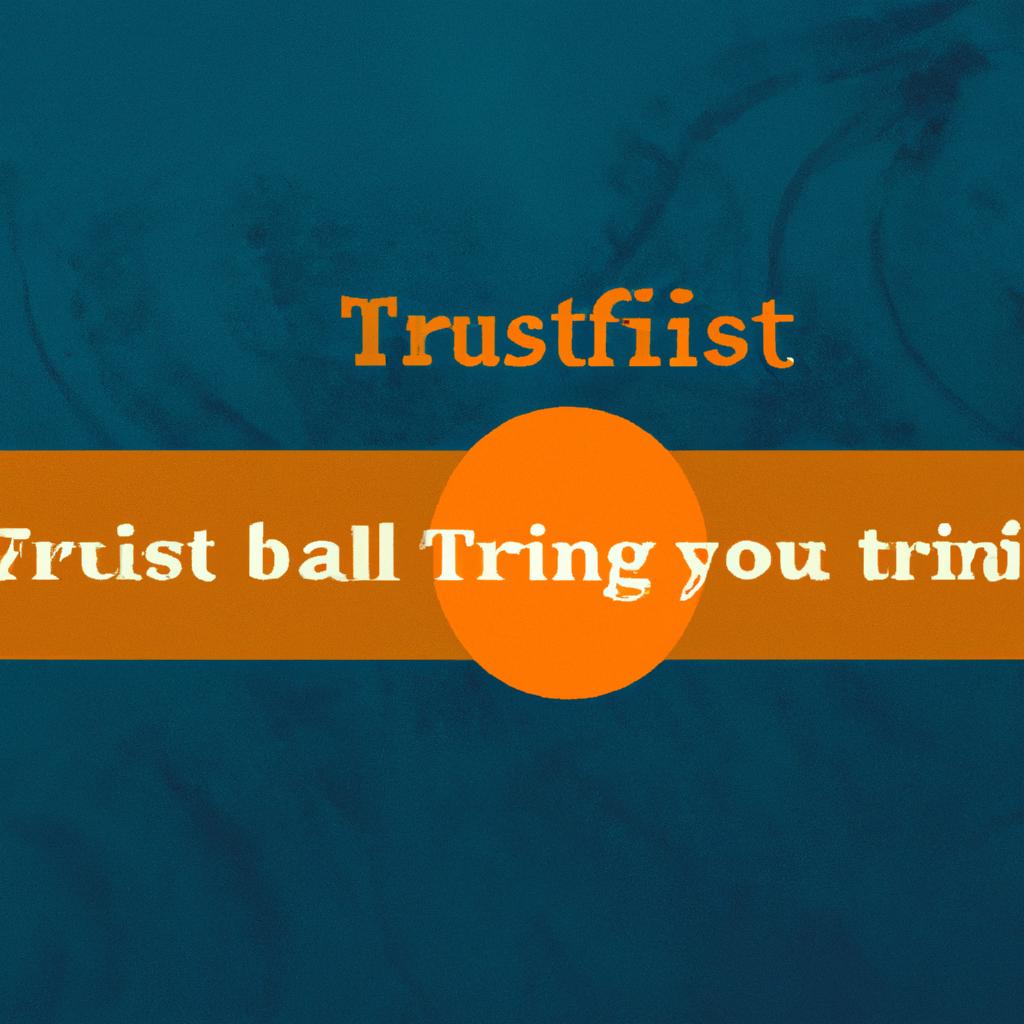When it comes to determining the best way to distribute your assets after your demise, the perennial debate of trust versus will often arises. Both alternatives have their unique benefits and drawbacks, leaving many individuals uncertain about the best path to follow. In this article, we’ll delve into the trust versus will debate, examining the advantages and disadvantages of each to help you make an informed decision that suits you and your loved ones. So, sit back, relax, and let’s embark on this enlightening journey together.
Trust or Will: Grasping the Fundamental Differences
When strategizing for the allocation of your assets posthumously, it’s crucial to comprehend the differences between a trust and a will. Both serve as estate planning instruments, but they have unique roles and functions. Here are some key differences to bear in mind:
- Control: A will only becomes effective upon your demise, while a trust can manage your assets during your lifetime and after. With a trust, you can dictate how and when your assets are distributed.
- Privacy: Wills undergo probate, a court-supervised procedure that becomes public record. Trusts, conversely, are typically not subject to probate, offering a degree of privacy for your beneficiaries.
In essence, the choice between a trust and a will depends on your unique circumstances and objectives. Consult with an estate planning attorney to ascertain which option is most appropriate for your needs. Remember, it’s never too premature to start planning for the future and ensuring your assets are distributed according to your wishes.
Advantages and Disadvantages of Opting for a Trust Over a Will
When choosing between a trust and a will, it’s vital to consider the pros and cons of each option. A trust offers several advantages, including:
- Privacy: Trusts are private documents that do not undergo the probate process, keeping your assets out of public record.
- Asset Protection: Trusts can shield your assets from creditors and lawsuits, ensuring your beneficiaries receive their inheritance.
- Probate Avoidance: Assets held in a trust do not go through probate, saving time and expense for your loved ones.
Conversely, there are some disadvantages to choosing a trust over a will, such as:
- Cost: Establishing a trust can be more costly than creating a will, requiring ongoing maintenance fees.
- Complexity: Trusts can be more complex to create and manage than wills, necessitating professional guidance.
- Lack of Flexibility: Trusts are generally more rigid than wills, limiting your ability to make changes once they are established.
Making the Right Choice: Factors to Take into Account
Trusts and wills are both crucial estate planning tools that can help ensure your assets are distributed according to your wishes after you pass away. When deciding between the two, there are several factors to consider to make the right decision for your individual circumstances.
Factors to Consider:
- Flexibility: Trusts offer more flexibility in how your assets are managed and distributed, allowing you to specify detailed instructions for your beneficiaries. Wills, conversely, are more rigid and may be subject to probate.
- Privacy: Trusts typically provide greater privacy as they are not public records, while wills are subject to probate court and become part of the public record.
- Cost: Setting up a trust can be more expensive than creating a will, but may ultimately save money in the long run by avoiding probate fees and other costs.
Ultimately, the decision between a trust and a will depends on your individual goals and preferences. Consult with an estate planning attorney to assess your specific situation and determine the best option for you.
Expert Advice for Successful Estate Planning
Trust vs Will: Which is Superior?
In the realm of estate planning, the enduring debate between a trust and a will continues. Both tools have their own set of benefits and drawbacks, making it essential for individuals to carefully consider their unique circumstances before making a decision. To assist you in navigating this intricate decision-making process, here are some benefits of each:
Advantages of a Trust:
- Privacy: Trusts are private documents that are not required to be made public, unlike wills which are subject to probate.
- Probate Avoidance: By transferring assets to a trust, you can avoid the often time-consuming and costly probate process.
- Control: Trusts allow for more flexibility and control over the distribution of assets, enabling you to specify how and when your beneficiaries receive their inheritances.
Advantages of a Will:
- Simplicity: Wills are often simpler and more straightforward to create compared to trusts, making them a popular choice for individuals with uncomplicated estates.
- Coverage: Wills allow you to designate guardians for minor children and specify your wishes regarding funeral arrangements, which may not be possible with a trust.
- Cost-Effective: Wills are generally less expensive to set up and maintain compared to trusts, making them a viable option for individuals with limited resources.
Final Thoughts and Conclusions
In conclusion, the decision between a trust and a will ultimately depends on your individual circumstances and preferences. Both options offer their own unique benefits and considerations. Whether you choose to establish a trust or create a will, the important thing is to ensure that your wishes and assets are protected and distributed according to your desires. Ultimately, the best choice is the one that aligns with your goals for the future. Trust in your decision-making process and seek professional guidance if needed to make the choice that feels right for you.
 **Trust vs Will: Unraveling the Best Option for You**
**Trust vs Will: Unraveling the Best Option for You**
In planning for the future, many individuals face a common dilemma: whether to establish a trust or create a will to distribute their assets upon their passing. Both options have their own unique benefits and considerations, so it’s important to understand the differences between the two in order to make an informed decision that aligns with your specific needs and goals.
**Trusts and Wills: An Overview**
**What is a Trust?**
A trust is a legal arrangement in which a trustee holds and manages assets on behalf of beneficiaries. The trustee is responsible for distributing the assets according to the terms outlined in the trust document. There are different types of trusts, including revocable and irrevocable trusts, each with its own set of rules and benefits.
**What is a Will?**
A will, on the other hand, is a legal document that outlines how you want your assets to be distributed upon your death. It allows you to specify who will receive your property, as well as designate guardians for minor children, establish trusts for beneficiaries, and name an executor to manage your estate.
**Benefits of a Trust**
– **Probate Avoidance**: Assets held in a trust typically bypass the probate process, which can be time-consuming and expensive.
– **Privacy**: Trusts are private documents that are not subject to public scrutiny, providing a level of confidentiality that wills do not offer.
– **Asset Protection**: Trusts can protect assets from creditors and other legal claims, ensuring that your beneficiaries receive their intended inheritance.
– **Incapacity Planning**: A trust can include provisions for managing your assets in the event of your incapacity, providing a smooth transition of management.
**Benefits of a Will**
– **Ease of Execution**: Wills are relatively simple to create and do not require the same level of ongoing management as trusts.
– **Cost-Effective**: Wills are typically less expensive to set up compared to trusts, making them a more accessible option for individuals with smaller estates.
– **Flexibility**: Wills allow you to make changes to your estate plan easily, providing the opportunity to update beneficiaries or change distribution terms as needed.
– **Guardianship Designation**: Wills allow you to name guardians for minor children, ensuring that they are cared for according to your wishes.
**Case Studies**
*John and Mary*:
John and Mary, a married couple with two young children, decided to establish a revocable living trust to hold their assets. They chose a trust over a will because they wanted to avoid probate and ensure that their children would be provided for in the event of their untimely passing. By setting up a trust, John and Mary were able to designate a successor trustee to manage their assets and provide instructions for how their property should be distributed to their children.
*Sarah*:
Sarah, a single individual with no children, opted to create a simple will to outline her wishes for her estate. She considered the cost-effectiveness of a will and the ease of execution as important factors in her decision-making process. By carefully detailing her beneficiaries and assigning an executor to oversee her estate, Sarah was able to create a clear plan for the distribution of her assets.
**Practical Tips**
– Consult with a qualified estate planning attorney to discuss your options and determine the best approach for your situation.
– Consider your unique circumstances, including family dynamics, financial goals, and charitable intentions, when planning your estate.
– Regularly review and update your estate plan to reflect changes in your life, such as marriage, divorce, births, deaths, or significant financial events.
In conclusion, the choice between a trust and a will ultimately depends on your individual goals, preferences, and circumstances. By weighing the benefits of each option and seeking guidance from a professional advisor, you can create an estate plan that reflects your wishes and provides for your loved ones in the years to come. Trust or will, the most important thing is to take proactive steps to ensure that your assets are protected and your legacy is preserved for future generations.


